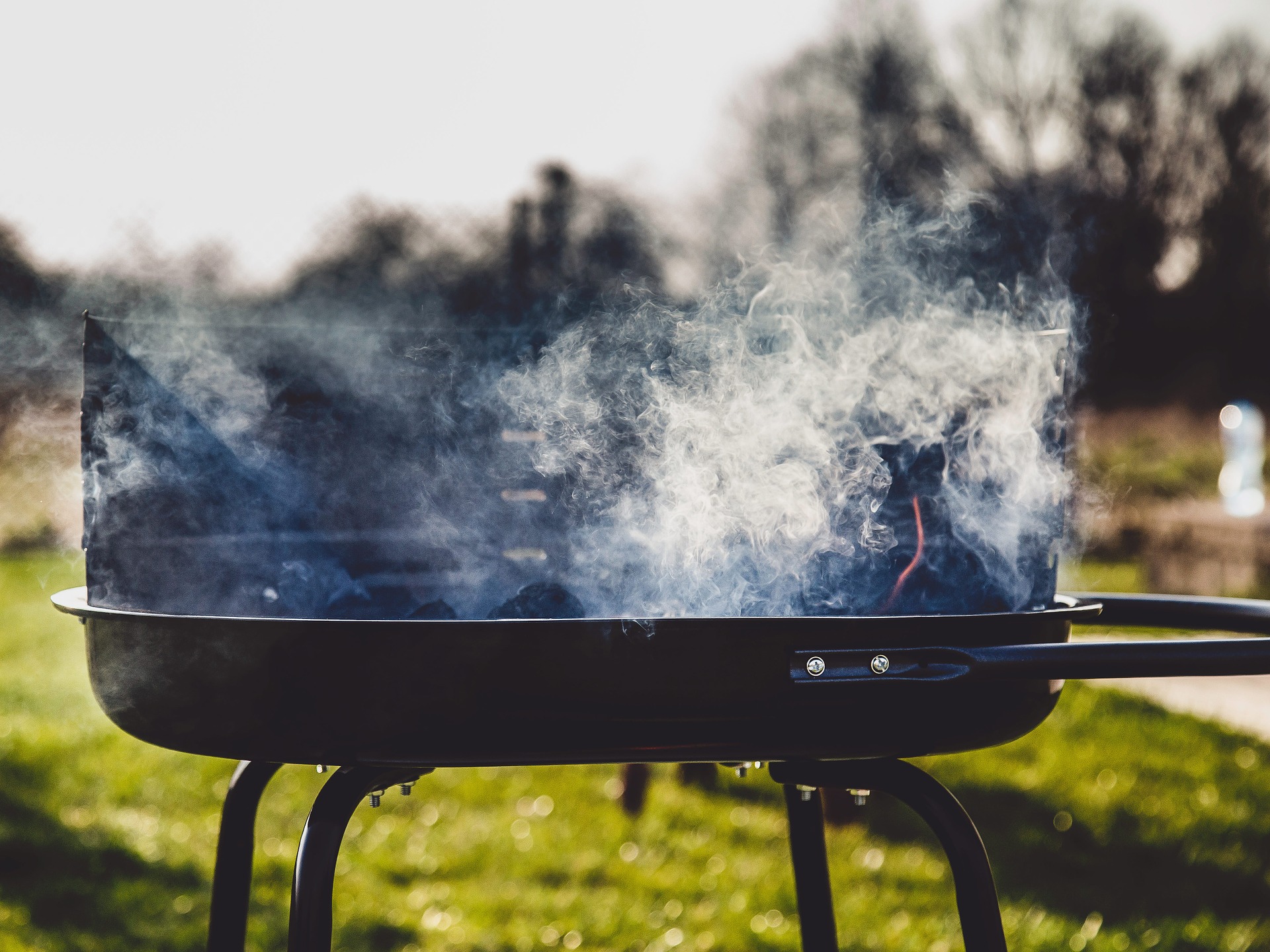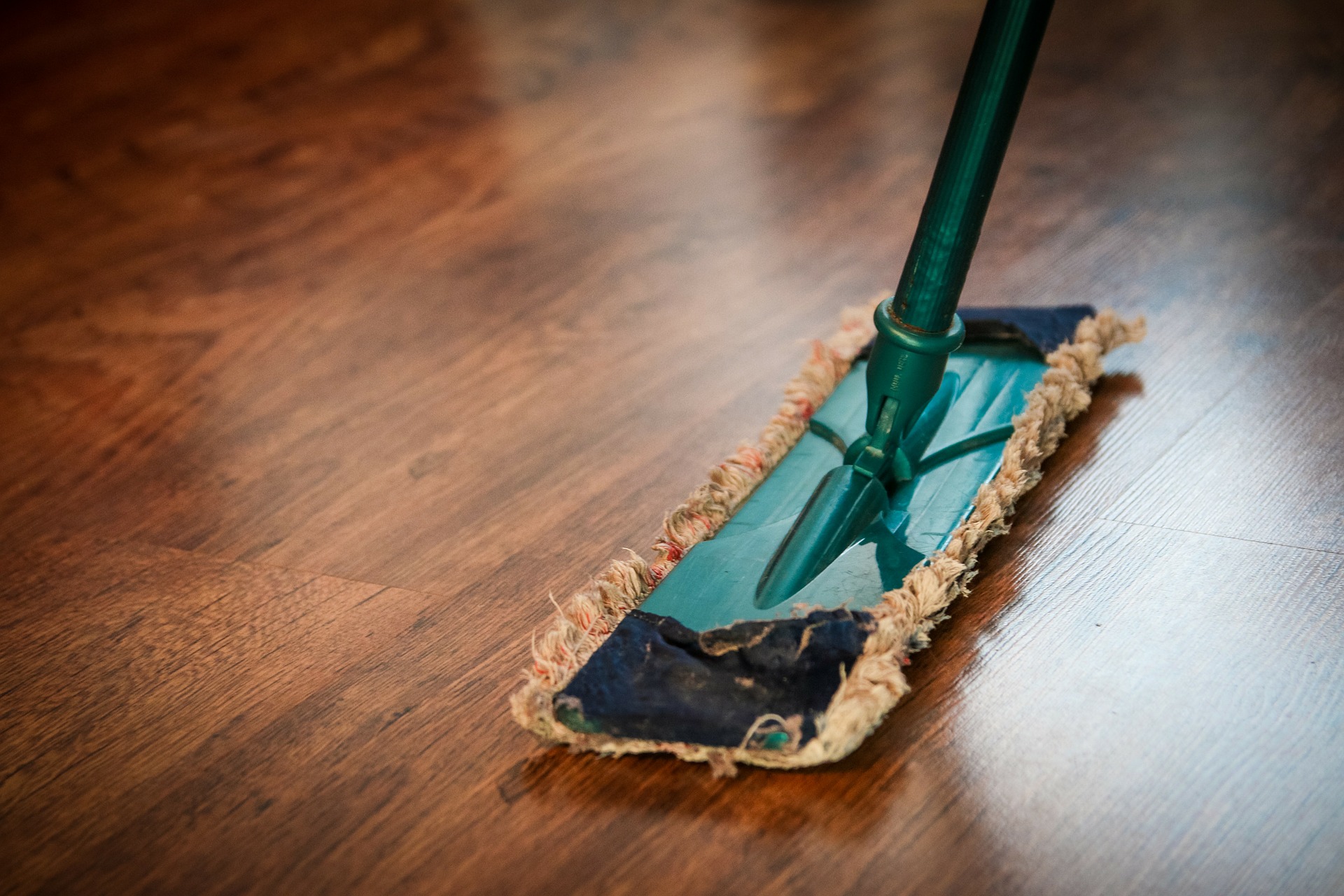When you park your RV in a beautiful spot to enjoy your time, expect appetites and enthusiasm to increase. Small space living, and cooking especially, are challenging. These seven tips will help you organize the kitchen and use techniques that simplify the process from start to finish.
1. Move It Outdoors
Stovetop and oven cooking in an RV take up valuable space and it’s easy to do both outside. Charcoal and gas grills are perfect for the kind of cooking that would otherwise take up space inside the RV. Slow cookers also work well for outdoor cooking as long as the cooker is out of the wind. Here’s an RV forum to help you find the best RV grill for your needs. We use a good-ole Weber grill that’s compact and easy to store when not in use.

We purchased a grill within a couple of weeks of being on the road. It can make meal time a whole lot easier.
2. Go Solar
You won’t need solar panels to use sunshine to cook your food. Solar cookers and solar ovens use the sun to create heat for cooking, use no fuel, and many fold up for easy storage. You won’t need to worry about draining your propane tanks or storing charcoal briquettes and lighter fluids.
Unlike cooking over a fire or the stove, solar cooking doesn’t demand a lot of attention. Food cooks more slowly and evenly, and requires less stirring. It also keeps the heat outside.
3. Use Dehydrated Products
High quality dehydrated food takes little space in the cabinets and when reconstituted according to the directions, tastes delicious. Local stores and online websites that offer preparedness supplies sell a wide variety of dehydrated products as well as kits to dehydrate your own food.
Some dehydrated food comes in #10 cans which take a lot of room. Estimate the amount you’ll use on your trip and put it into smaller containers or zippered plastic bags. Write the instructions on a piece of paper that you keep with the food to reconstitute it as you need it.
4. Keep it Clean
Wash dishes and clean the counters as you go about cooking. It takes time to make it a habit to clean as you cook, but it will pay off by reducing the number of utensils you need. Less kitchen clutter makes it easier to work and the RV lighter.
PFOA- and PTFE-free nonstick cookware to speed the cleaning process and cut down on the amount of oil you use. Cooking oils and fats slow drains, which makes it more difficult to cook and clean.

An RV requires much more cleaning and tidying than a typical house because dirt and leaves are constantly being dragged in from outdoors.
5. Organize It
If there has ever been a reason to organize your kitchen based on how and what you cook, it’s when you’re cooking in an RV. Keep little used kitchen items in high places, or store them elsewhere in the RV. Keep kitchen essentials within arm’s reach. I’d highly recommend checking out RV Goddess’ take on organizing your RV kitchen; she has some wonderful tips that she’s compiled after spending years on the road in her motorhome.
6. Use Collapsible and Nesting Products
Kitchenware that collapses or nests as sets saves loads of space inside the more compact motorhome cabinets. You can take space efficiency to the next level by using square plates instead of classic round dishes.
7. Find Farmers’ Markets
When we decided to downsize to our RV, we had to give up a lot of the luxuries of our stationary life, which included canceling the Blue Apron boxes we used to receive every week. This saddened me, because I was used to having really fresh food and exciting new recipes to try every week. My solution? I comb this site for new Blue Apron recipes with the best reviews and do my own shopping for fresh produce at farmers’ markets along our route (I use this list as a starting point). Instead of stockpiling fresh, in-season produce, we get a few days’ worth at a time. This means we stop more frequently for groceries than we would at home, but it enables us to eat fresher, healthier foods. Plus, what else do a couple of retired people have to do anyway?! Storing less in the refrigerator or the counters makes food preparation easier and saves the time you would otherwise spend searching through the refrigerator and finding counter space.

Now on “driving” days, we seek out local farmers markets to stock up on fresh fruits and veggies.